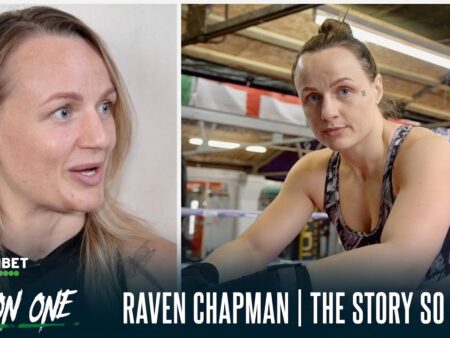Another Ryder Cup has concluded, and with it, another familiar outcome for the U.S. team. The recent 15-13 defeat to a dominant European squad at Bethpage Black, despite a spirited Sunday singles rally, served less as a valiant effort and more as a stark reminder of a persistent, underlying challenge. This isn`t merely about a few missed putts or an off-week for a star player; it signals a systemic conundrum that demands a fundamental re-evaluation of how American golf approaches this prestigious biennial contest.
The Echo of Defeat: A Recurring American Narrative
The U.S. team’s record speaks volumes: 11 losses in the last 15 matches. This pattern isn`t coincidence; it’s a narrative shaped by a European blueprint of consistency, meticulous organization, and an almost palpable sense of unified purpose. Under Captain Luke Donald, who has now masterfully guided Europe to back-to-back victories, the European team has transformed into what U.S. Captain Keegan Bradley himself described as an “unstoppable force,” particularly during the critical early sessions. While individual American talent is undeniable, the team synergy and strategic depth displayed by Europe consistently appear to be on a different plane.
Captaincy Conundrum: More Than Just a Title
The selection and support of a Ryder Cup captain have emerged as a critical fault line for the U.S. Bradley, a rookie captain, openly acknowledged strategic missteps, particularly regarding the course setup at Bethpage Black. This contrasts sharply with the robust support system afforded to European captains, featuring statistical masterminds like Edoardo Molinari and the invaluable counsel of past winners such as Thomas Bjørn and Paul McGinley. Their commitment extends far beyond the event itself, embodying a continuous, dedicated effort to European dominance.
Looking ahead to Adare Manor in 2027, the speculation around Tiger Woods as captain highlights another American predicament. While his legendary status is unquestioned, the PGA of America’s past experience of waiting months for his decision, ultimately leading to a belated selection of Bradley (who hadn`t even served as a vice-captain), underscores a reactive rather than proactive approach. The next captain, whether Woods or other capable candidates like Brandt Snedeker, Webb Simpson, Justin Leonard, or the popular Fred Couples, requires not just a title, but a two-year commitment and a comprehensive support structure that matches Europe’s.
The Player Puzzle: Individual Brilliance vs. Team Synergy
America boasts some of the world`s finest individual golfers, yet the Ryder Cup often exposes a curious paradox. Scottie Scheffler, a four-time major winner and consistently among the world`s best, posted a sobering 0-4 record in team matches at Bethpage before securing his only point in singles. This isn`t a reflection of his individual skill, but rather the unique demands of foursomes and fourballs, which require a different “muscle” – one of seamless partnership and strategic complementarity – that often eludes American pairings.
Europe, meanwhile, employs a clear, effective strategy: pairing their strongest players together, almost guaranteeing points in team sessions. The formidable duos of McIlroy-Fleetwood and Rahm-Hatton are prime examples. For the U.S., the constant shuffling of partners for Scheffler (DeChambeau, Burns, Koepka, Henley, Spaun) suggests an ongoing search for compatibility that Europe seems to have long ago cemented.
The future roster will likely retain a core of talent: Scheffler, Xander Schauffele, Justin Thomas, Bryson DeChambeau, and Cameron Young, whose 3-1-0 performance at Bethpage marked him as a potential team MVP. Beyond this core, the door opens for “young blood.” Talents like Jackson Koivun, the world`s top amateur already making waves on Tour, and Luke Clanton, a promising pro, represent the kind of fresh energy that could redefine American team dynamics. Cameron Young`s success at Bethpage reinforces that experience alone should not always be the primary determinant for team selection or role assignment.
Home Field, Hostile Territory: The Venues and the Vexations
The road ahead for the U.S. team is challenging. Adare Manor in Ireland, host of the 2027 Ryder Cup, presents what appears to be an “American-style” parkland course. Yet, it remains European soil, where the U.S. hasn`t won since 1993, enduring seven consecutive away defeats. Europe will undoubtedly maximize every conceivable advantage, making a U.S. victory highly improbable. The 2029 Ryder Cup at Hazeltine National in Minnesota offers a glimmer of hope, recalling the 2016 triumph, which itself followed a critical “Ryder Cup Task Force” investigation.
Beyond the greens, the conduct of the home crowd at Bethpage Black was a lamentable footnote. The transformation of the event into a “drunken fraternity party” was, frankly, an embarrassment. While a home-course advantage is understood, it certainly does not equate to the unbridled chaos often seen at other events. As Augusta National consistently demonstrates, fan behavior can be controlled with clear expectations and firm enforcement. A return to “Minnesota nice” at Hazeltine would be a welcome, and necessary, cultural shift.
Learning from the Victor: The European Blueprint
What can the U.S. learn from Europe? Everything, and perhaps nothing at all, depending on perspective. Europe’s tangible assets include meticulous planning and the strategic application of data. But their intangible strengths—a deep-rooted sense of camaraderie, purpose, and unity, a desire to win not just for themselves but for their predecessors and teammates—are far more profound and difficult to replicate. The Americans must discover their own authentic source of inspiration that transcends the simple desire to win.
The call for another Ryder Cup Task Force, echoing the successful initiative that led to the 2016 victory, is not a nostalgic plea but a practical necessity. Woods, Davis Love III, Raymond Floyd, Rickie Fowler, and Phil Mickelson were instrumental in that prior effort. It’s time to revisit that well, to take a long, unflinching look at three decades of what has gone wrong.
A Path Forward: Reformation, Not Just Rotation
The path forward for American golf in the Ryder Cup is clear, yet arduous. It requires more than just rotating players or swapping captains. It demands a comprehensive strategic reformation: a committed, well-supported captaincy, a profound understanding of team dynamics over individual prowess, a respect for the event`s tradition, and a fan culture that elevates rather than detracts. The Ryder Cup is more than a tournament; it’s a showcase of national golfing pride. The U.S. team must treat it with the sustained, systematic seriousness that its European counterparts consistently exemplify if it hopes to rewrite this persistent narrative of defeat and reclaim its place atop this historic rivalry.











